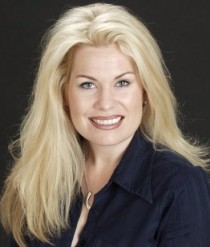Author: Mike Janssen
Mike has held the role of digital editor since 2014. Before becoming editor, he covered public radio and digital initiatives in public media for Current. Mike has also written for a variety of publications as a freelancer, was a Public Media Corps fellow, and has hosted talk and music shows on community radio stations in the Washington, D.C., area. In his spare time, he enjoys spending time with his family, playing banjo, cooking, and making coffee and cocktails.
Long Island psychic finds radio audience eager for forecasts
Listeners to WPPB in Long Island, N.Y., can listen to Morning Edition or the BBC Newshour if they want to know what’s happening now. But if ...By Mike JanssenApril 22, 2013Facing tight deadline, Pacifica leaders disagree over relocation plans for WPFW
WPFW-FM, the Pacifica station in Washington, D.C., faces a deadline to vacate its studios at the end of month and still has ...By Mike JanssenApril 18, 2013Austin Music Map: mapping the places where ‘music is made all the time’
The music world of Austin, Texas, is now being shared with a global audience thanks to Austin Music Map, a website developed ...By Mike JanssenApril 18, 2013KCRW’s Shearer learned of show’s cancellation after last appearance on air
In a post on his website, actor Harry Shearer describes how he learned about the cancellation of his long-running show on KCRW ...By Mike JanssenApril 17, 2013Arizona radio stations ask FCC for looser underwriting rules
The licensee of KJZZ and KBAQ in Phoenix has asked the FCC for temporary permission to sidestep the agency’s rules governing language ...By Mike JanssenApril 12, 2013American Routes throws shindig for 15th anniversary
Public radio’s American Routes is celebrating its 15th anniversary on the air with a dance and concert in New Orleans and a discount for ...By Mike JanssenApril 9, 2013Speedskater Bridie Farrell brings story of abuse to Milwaukee Public Radio
Milwaukee Public Radio host Mitch Teich could have predicted a few outcomes from his decision to take up speedskating — sore muscles, ...By Mike JanssenApril 5, 2013PRPD offers new round of trainings
The Public Radio Program Directors Association will expand its training programs for stations this year and continue its Sense of Place studies ...By Mike JanssenApril 2, 2013Massachusetts’ WFCR adds to capital campaign with Cosby fundraiser
New England Public Radio in Amherst, Mass., got a helping hand earlier this month from a famous friend when listener and local ...By Mike JanssenMarch 26, 2013NPR to pilot alerts for people with hearing disabilities
NPR will test a system for delivering emergency alerts to individuals who are deaf or hard-of-hearing in Gulf Coast states under a ...By Mike JanssenMarch 15, 2013NFCB board dismisses president; v.p. calls decision “a huge mistake”
The board of directors of the National Federation of Community Broadcasters has dismissed NFCB President Maxie Jackson as of March 4. He ...By Mike JanssenMarch 13, 2013Pubradio backs musical acts at SXSW festival
Public radio will be well-represented at the musical portion of the annual South by Southwest festival in Austin, Texas, March 13–16. The ...By Mike JanssenMarch 12, 2013Briscoe no longer at Newark’s WBGO-FM
Thurston Briscoe is no longer at WBGO-FM in Newark, N.J. His last day was Friday. The news was first reported on the ...By Mike JanssenMarch 12, 2013Pittsburgh Public Media acquires W.Va. FM station for jazz programming
The FCC has approved the sale of a West Virginia college station to Pittsburgh Public Media, a jazz webcaster run by former ...By Mike JanssenMarch 7, 2013Two Native tribes are first to benefit from FCC rules favoring tribal applicants
Native tribes in New Mexico and Arizona are the first to benefit from the FCC’s Tribal Radio Priority, a provision created by ...By Mike JanssenMarch 6, 2013





